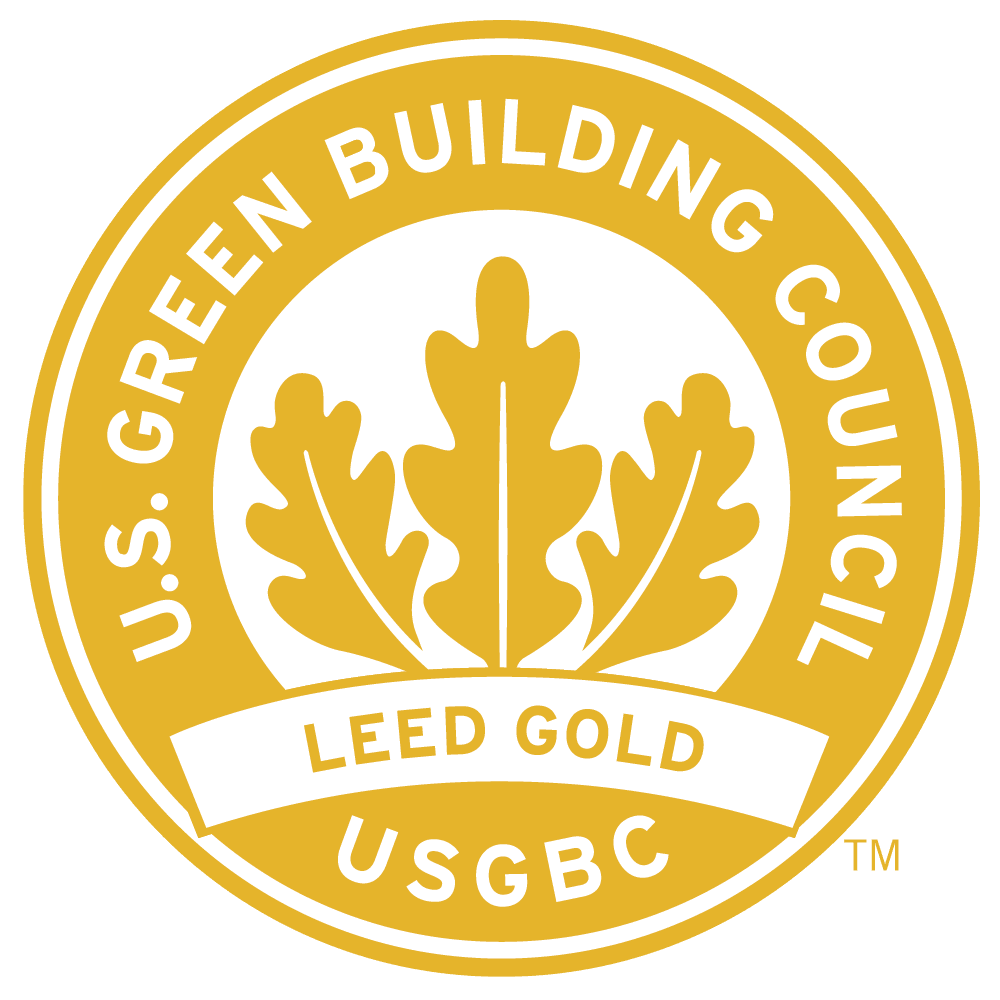Sustainability
Doing our part to LEED the way
The UC Davis Library is committed to minimizing the environmental impact of our buildings and operations. As the largest and most visited building on the main campus, the Peter J. Shields Library has an important role to play in helping UC Davis meet its sustainability goals.
In 2021, Shields Library received LEED Gold certification under the U.S. Green Building Council’s Leadership for Energy and Environmental Design for Existing Buildings: Operations & Maintenance (LEED EB: OM). This category recognizes sustainability improvements to existing buildings.
The Shields Library project is critical to our campus and the students because it is the largest building and one of the most frequented buildings on our campus.
—Teak Hahn ’21, a green buildings intern at UC Davis Facilities Management who worked on the Shields Library project
A Historic Building Gets a Green Makeover
Shields Library has been part of UC Davis since its earliest days. The original library building — now its north wing, where the Main Reading Room is located — was completed in 1940. Three more wings were added over the subsequent half-century; the west wing, where the main entrance is located today, was completed in 1990.
When UC Davis’ Facilities Energy & Engineering team undertook the project to improve Shields Library’s sustainability and pursue LEED certification, it was a unique challenge due to the building’s age, size and the complexity of its features.
Shields Library’s Green Features
Sustainable Sites:
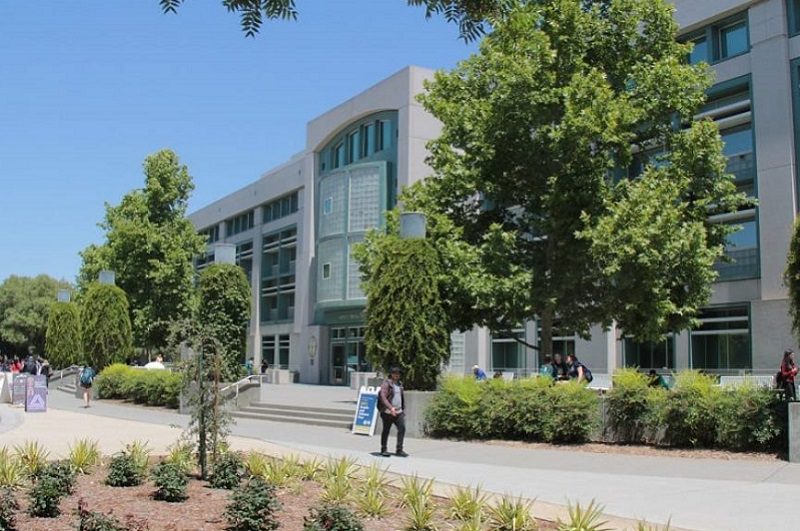
The roof and hardscape surrounding Shields Library are light in color and highly reflective, which reduces absorption of the sun’s warmth and radiation, and reduces indoor cooling costs during hot months. Trees planted near the building allow for shade that also helps reduce solar radiation.
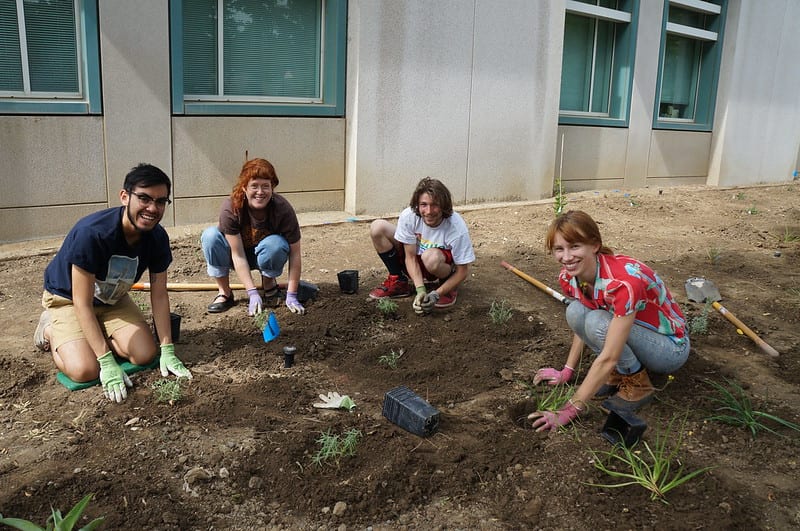
Energy & Atmosphere:

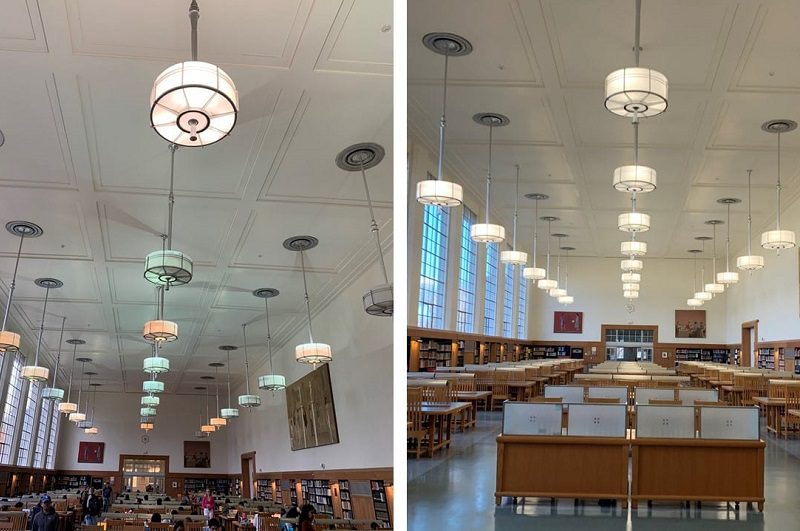
Before and after: Facilities Management’s Building Maintenance Services replaced the 27 lamps in the Main Reading Room with LEDs, saving almost 17,000 watts.
Other lighting fixture upgrades included motion sensors and daylight sensors. (If it ever seems dark when you’re looking for a book, that’s why! Just go down the row and the lights will turn on.).
Materials & Resources:
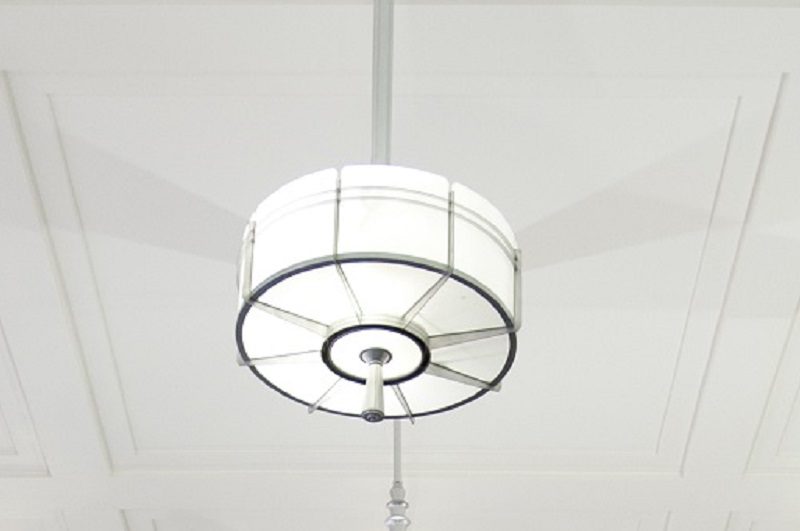
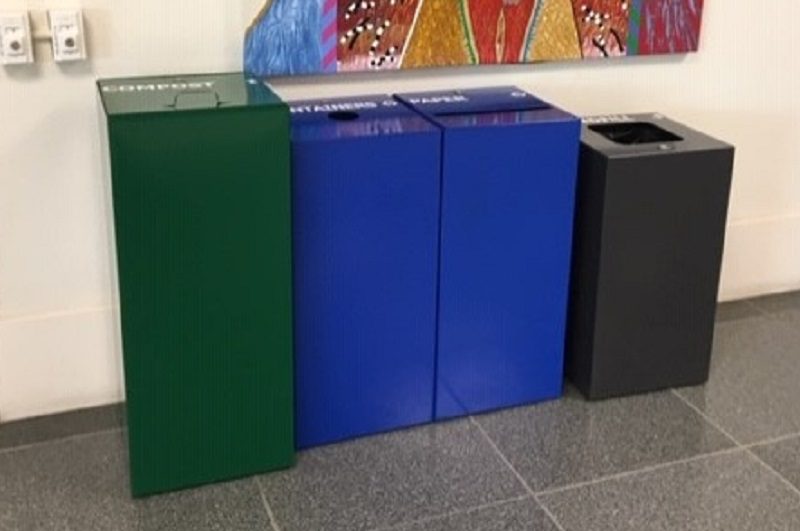
The Bottom Line
With these improvements, Shields Library earned 73 points and qualified for LEED Gold certification, the second-highest level awarded. (LEED Platinum buildings are those that score 80 points and above.)
